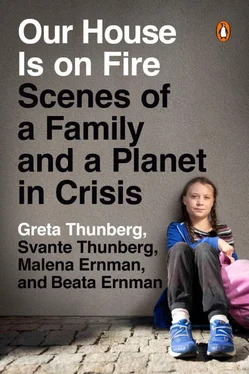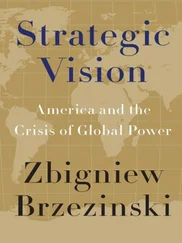Greta Thunberg - Our House Is on Fire - Scenes of a Family and a Planet in Crisis
Здесь есть возможность читать онлайн «Greta Thunberg - Our House Is on Fire - Scenes of a Family and a Planet in Crisis» весь текст электронной книги совершенно бесплатно (целиком полную версию без сокращений). В некоторых случаях можно слушать аудио, скачать через торрент в формате fb2 и присутствует краткое содержание. Город: New York, Год выпуска: 2020, ISBN: 2020, Издательство: Penguin Books, Жанр: Биографии и Мемуары, Публицистика, на английском языке. Описание произведения, (предисловие) а так же отзывы посетителей доступны на портале библиотеки ЛибКат.
- Название:Our House Is on Fire: Scenes of a Family and a Planet in Crisis
- Автор:
- Издательство:Penguin Books
- Жанр:
- Год:2020
- Город:New York
- ISBN:978-0-14313-357-5
- Рейтинг книги:4 / 5. Голосов: 1
-
Избранное:Добавить в избранное
- Отзывы:
-
Ваша оценка:
- 80
- 1
- 2
- 3
- 4
- 5
Our House Is on Fire: Scenes of a Family and a Planet in Crisis: краткое содержание, описание и аннотация
Предлагаем к чтению аннотацию, описание, краткое содержание или предисловие (зависит от того, что написал сам автор книги «Our House Is on Fire: Scenes of a Family and a Planet in Crisis»). Если вы не нашли необходимую информацию о книге — напишите в комментариях, мы постараемся отыскать её.
Our House Is on Fire: Scenes of a Family and a Planet in Crisis — читать онлайн бесплатно полную книгу (весь текст) целиком
Ниже представлен текст книги, разбитый по страницам. Система сохранения места последней прочитанной страницы, позволяет с удобством читать онлайн бесплатно книгу «Our House Is on Fire: Scenes of a Family and a Planet in Crisis», без необходимости каждый раз заново искать на чём Вы остановились. Поставьте закладку, и сможете в любой момент перейти на страницу, на которой закончили чтение.
Интервал:
Закладка:
We talk about friendships being put to the test when you let the climate crisis influence and change your life, but Kevin says that he has never had any major problems with that.
‘I never get angry at climate-change deniers or sceptics,’ Kevin says. ‘Not even politicians or decision-makers irritate me all that much. The only thing that truly upsets me is other scientists who more or less consciously distort their scientific analysis and conclusions so that they will appear less alarming than they are. That makes me angry.’
When you see Kevin talk on stage you understand that on some level he is angry, but he never looks angry. More like impassioned, factual and full of conviction. When you listen to his voice you can definitely hear traces of fury, but he never sounds upset.
‘There are those,’ Kevin continues, ‘who think that we scientists shouldn’t tell it like it is because it’s too political. I think it’s the other way around. It’s those who choose to be silent who are truly political, because their silence says that everything is okay, and that’s an extremely powerful message that supports the status quo, or business-as-usual. Many researchers also say that our message can’t be dealt with within the current political and economic systems, and for that reason we have to adapt what we say to the prevailing reality. But once again I think that’s wrong. We climate scientists are only climate scientists after all. Our mission is to present facts about the climate. We aren’t experts in politics or social issues, so it isn’t our place to let the politics – or the thought of how our results are going to be received – guide our work. Our mission is to do our research carefully and communicate our conclusions clearly and bluntly.’
We finish our lunch and put the trays away. Eager to snap up three abandoned scraps of bread, Roxy overturns the water bowl. In order to explain many of his scientist colleagues’ aversion to plain speech, Kevin returns yet again to the years after James Hansen’s testimony to US Congress and the UN’s first climate conference in Rio de Janeiro.
‘When we started working with this issue after Rio in 1992, there was great optimism about how we could solve the problems, and that positive spirit lives on today. Such optimism was legitimate then. But, as the years have passed and nothing meaningful has happened, the problems have of course accumulated. Yet we still have that optimism we felt in the beginning. Many scientists have been a little like the frog in the pot. At what point should we jump out?’
‘But has that started to change?’ Svante asks.
‘Yes. Now, when climate impacts are happening so much faster than any of us expected, we see more and more researchers choosing to be more outspoken. But it happens very gradually and they still usually choose to soften and tone down the message when they speak publicly. If, for example, you have a beer with a scientist or an informed politician, they’ll discuss how bad the situation is. But put a microphone in front of them, and all too often they’ll trot out some optimistic nonsense about climate change.’
We leave the shade of the apple trees and go out into the baking Uppsala sun. On our way back to the university we ask Kevin and Isak how often they are asked to take part in media and public broadcasting.
We know how unapproachable Sveriges Television is where programmes about the climate are concerned, but we want to ask anyway – if for no other reason than to have something about this on record from 2018. We’ve tried to present and offer various programme ideas ourselves, but not even with Sweden’s most well-known and successful TV producer attached was there any interest.
‘We listened to Johan Rockström’s summer talk and it left us with a sense of hope. As if we’re going to fix this,’ a programme commissioner said when they declined six segments of infotainment about climate and sustainability.
But for a long time now one of the world’s leading climate researchers has been active in Uppsala for several months a year. SVT or TV4 must have used this opportunity to do something on this subject that causes Swedes the most worry…?
But no. No inquiry from national TV has come in. ‘On the other hand we have seen a strong increase in interest from the media since Kevin arrived,’ Isak explains. ‘We often get inquiries and we’ve contributed quite a bit to radio, newspapers and regional TV.’
‘Okay, but how many times has Kevin appeared on Rapport , Aktuellt or the TV4 news?’
‘Never,’ Isak answers.
‘How many times has Kevin been asked to appear on Rapport , Aktuellt or the TV4 news?’
‘Never,’ Isak repeats.
‘Been interviewed in Dagens Nyheter or Svenska Dagbladet? ’
Isak makes a face and once again shakes his head before he repeats the answer for the third time.
‘Never.’
On the ride home to Stockholm in the electric car we think about all the things we forgot to ask.
But it doesn’t matter, because those questions never needed to be asked.
You see, there is no resignation, no darkness or gloom in Kevin Anderson’s vicinity.
There is simply the calm, hopeful and solid energy of taking the initiative.
SCENE 85.
‘It’s never too late to do as much as we can.’ – Pär Holmgren
If the history of the earth were to be translated into one year, the Industrial Revolution would take place roughly one and a half seconds before midnight. On New Year’s Eve.
During this – in historical terms – infinitesimally brief period, we have already caused so much destruction that our progress can only be compared with the earth’s previous five mass extinctions. Although with one major difference: time.
Events that without human involvement would have taken hundreds of thousands or millions of years we can knock off in a few weeks, just by living as usual.
We are living in what is often referred to as the sixth mass extinction. And it did not start at the end of the eighteenth century: it’s been going on for thousands of years.
Many people think there was a time when humans lived in harmony with nature, but no such time has ever existed.
People have lived in harmony with nature. But never humankind.
Wherever we have ventured, extinction has followed in our tracks. The connection between humankind’s appearance and the number of extinct species – primarily really large animals known as ‘megafauna’ – speaks for itself.
But it is a language that we can relinquish. If we want to.
SCENE 86.
Testament from an Era of Historic Abundance to All Future Generations
There will come a time when we are no longer here.
There will come a time when our children and grandchildren and their children are no longer here.
A time when, in the best case, we live on in a family tree, a hard drive or some dusty photograph where no one recognizes anyone any longer.
Sooner or later we are all going to slip into oblivion, however important, hated or loved we might have been during our lifetimes.
It’s a difficult thought. And it doesn’t get any easier once you realize that the things we will leave behind in the end will be quite a bit more than just some memories, deeds and photographs. Because it turns out that the sound, humanistic upbringing most of us have been granted omitted one small detail: our ecological footprint.
You see, there will be a time when we are all gone and forgotten, and the only thing left of us will be those greenhouse gases that we more or less unwittingly sent up into the atmosphere.
Читать дальшеИнтервал:
Закладка:
Похожие книги на «Our House Is on Fire: Scenes of a Family and a Planet in Crisis»
Представляем Вашему вниманию похожие книги на «Our House Is on Fire: Scenes of a Family and a Planet in Crisis» списком для выбора. Мы отобрали схожую по названию и смыслу литературу в надежде предоставить читателям больше вариантов отыскать новые, интересные, ещё непрочитанные произведения.
Обсуждение, отзывы о книге «Our House Is on Fire: Scenes of a Family and a Planet in Crisis» и просто собственные мнения читателей. Оставьте ваши комментарии, напишите, что Вы думаете о произведении, его смысле или главных героях. Укажите что конкретно понравилось, а что нет, и почему Вы так считаете.






![Корнелл Вулрич - Murder at Mother’s Knee [= Something That Happened in Our House]](/books/398097/kornell-vulrich-murder-at-mother-s-knee-somethin-thumb.webp)





